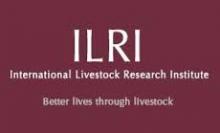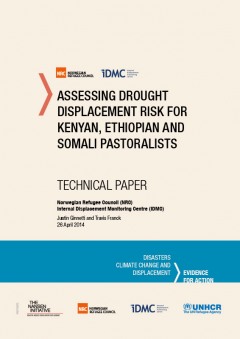Location
Vision, mission and strategy
ILRI's strategy 2013-2022 was approved in December 2012. It emerged from a wide processof consultation and engagement.
ILRI envisions... a world where all people have access to enough food and livelihood options to fulfil their potential.
ILRI’s mission is... to improve food and nutritional security and to reduce poverty in developing countries through research for efficient, safe and sustainable use of livestock—ensuring better lives through livestock.
ILRI’s three strategic objectives are:
- with partners, to develop, test, adapt and promote science-based practices that—being sustainable and scalable—achieve better lives through livestock.
- with partners,to provide compelling scientific evidence in ways that persuade decision-makers—from farms to boardrooms and parliaments—that smarter policies and bigger livestock investments can deliver significant socio-economic, health and environmental dividends to both poor nations and households.
- with partners,to increase capacity among ILRI’s key stakeholders to make better use of livestock science and investments for better lives through livestock.
This is ILRI’s second ten-year strategy. It incorporates a number of changes, many based on learning from the previous strategy (2000–2010, initially produced in 2000 and modified in 2002), an interim strategy (2011–2012) and an assessment of the external and internal environments in which the institute operates.
Members:
Resources
Displaying 331 - 335 of 1152Farmer field days in the Nile Basin Development Challenge
This digital story was produced to communicate work done by the Nile Basin Development Challenge (NBDC), specifically activities undertaken by the team working on 'Technologies, Institutions and Policies'. The NBDC aimed to improve the livelihoods of farmers in the Ethiopian highlands through land and water management and was funded by the Challenge Program for Water and Food. For more information see: http://nilebdc.org
Assessing drought displacement risk for Kenyan, Ethiopian and Somali pastoralists
A new way of thinking This study reflects emerging awareness of the need to see disasters as primarily social, rather than natural, phenomena. Individuals and societies can act and take decisions to reduce the likelihood of a disasters occurring or, at the very least, to reduce their impacts and the levels of loss and damage associated with them. Disasters are thus no longer being perceived as ‘acts of God’ but instead as something over which humans exert influence.
Climate change impacts on animal health and vector borne diseases
IBLI—opening up new frontiers for pastoralists in northern Kenya
Opening up new frontiers for Pastoralists in Northern Kenya. Wajir Index Based Livestock Takaful (IBLT) payout ceremony, March 2014.
A Delicate Balance
Excluding the introductory and concluding chapters, this book has 11 chapters presented in three sections. The first section dwells primarily on conceptual issues, which comprehensively unravels large-scale agricultural investments and their impacts at the theoretical level.






